WRAP UP STORIES
Bryan Pearson
HB70, a bill that modifies how law enforcement agencies obtain forcible entry warrants, passed the State Legislature March 13, and now awaits approval from the governor.
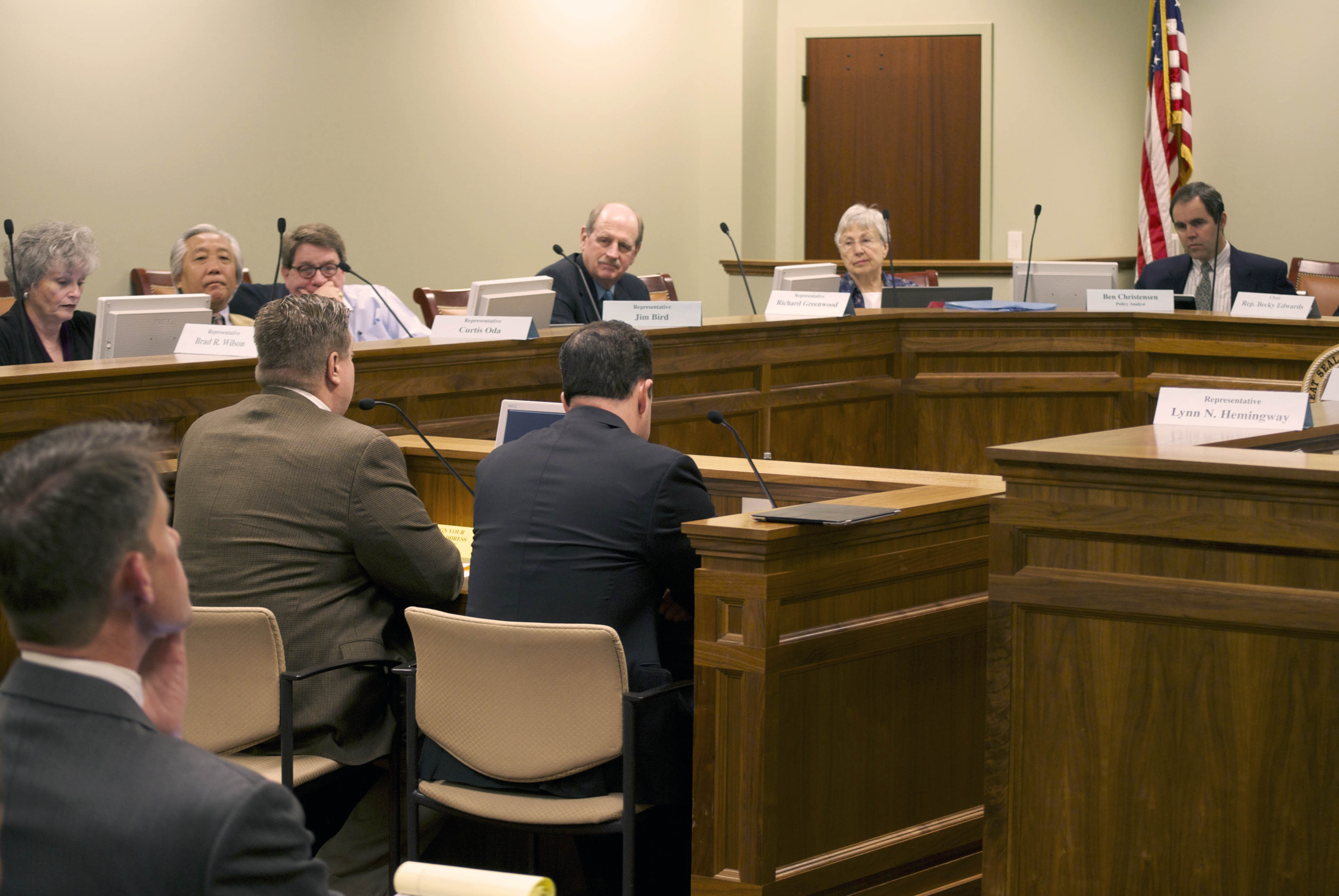
Rep. Mark C. Roberts, R-Santaquin, who sponsored the bill said, “We’ve seen a lot in the news lately not only in Utah but across the country … searches and warrants being served in homes that have not ended well. They’ve been the wrong homes and things like that and so the whole idea is to … slow down the process a little bit so we can protect lives on both sides.”
HB70 changes the standard to issuing a forcible entry warrant from “reasonable grounds” to “probable cause.” That language according to Marina Lowe of American Civil Liberties Union of Utah that is the standard for issuing regular warrants.
Bryan Pearson
HB212 would require those arrested on felony charges to provide a DNA sample will move on to be signed by Gov. Gary Herbert for approval before it becomes law.
The bill’s sponsor, Rep. Steve Eliason, R-Sandy, referred to the U.S. Supreme Court case Maryland v. King to highlight the constitutionality of his bill.
The Supreme Court held that, “taking and analyzing a cheek swab of the arrestee’s DNA is, like finger printing and photographing, a legitimate police booking procedure that is reasonable under the Fourth amendment.”
Paul Cassell, a criminal law professor at the University of Utah and former federal judge for the district of Utah said, “DNA sampling is the 21st Century equivalent of fingerprinting,”
He also noted that, DNA sampling is important to apprehending dangerous criminals and sampling will allow law enforcement agencies to quickly identify rapists and other dangerous criminals.
Bryan Pearson
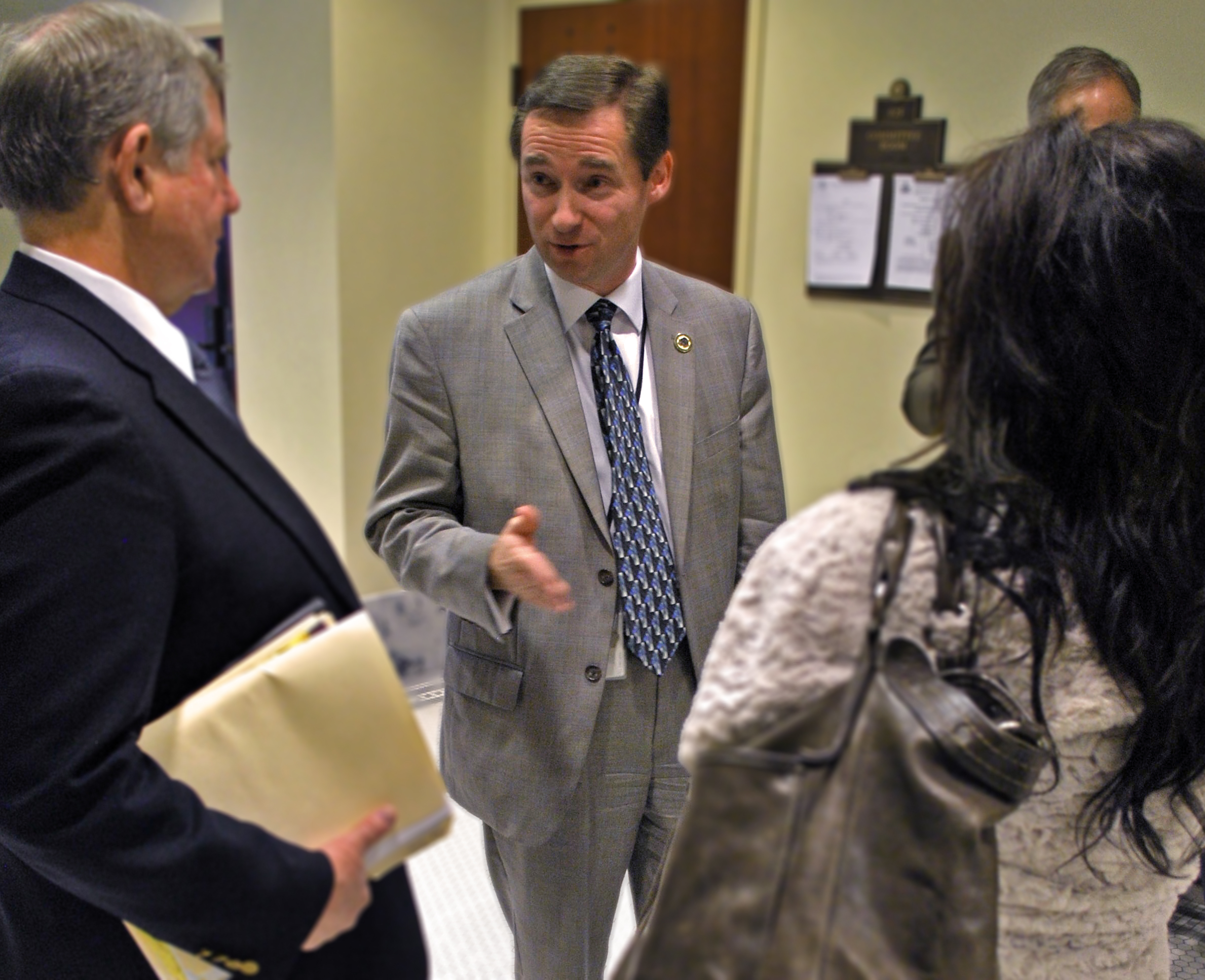
In passing HCR8, the Utah State Legislature has decided that it is in the best interests of Utah to continue to discuss moving the State Prison in Draper to another location.
Rep. Brad Wilson, R-Kaysville, the concurrent resolution sponsor, said, “What the resolution is attempting to do is change the dialog … from ‘Should we move the prison?’ to ‘How and when do we move the prison?’ That’s the purpose of the resolution.”
The Prison Re-location and Development Authority estimates an annual $1.8 billion gain for the economy and an increase of $95 million in annual state and local taxes.
Deborah Reithmuller, founder of the Utah Prison Support group and the wife of a current inmate, said she is wary of re-locating the prison because doing so would increase travel distance for current prison volunteers.
The bill does not actually move the prison, simply creates a group which would study how to do so.
Leisel Hansen
SALT LAKE CITY — HB286, The bill for educating children on sexual abuse prevention, was passed on March 12.
“It’s important to think about the damage that happens in these children’s lives,” Rep. Rebecca Chavez-Houck said.
The bill would train teachers on educating children about sexual abuse and how to prevent it happening in their lives. Rep. Angela Romero sponsored the bill and said she talked to many adult survivors about abuse prevention.
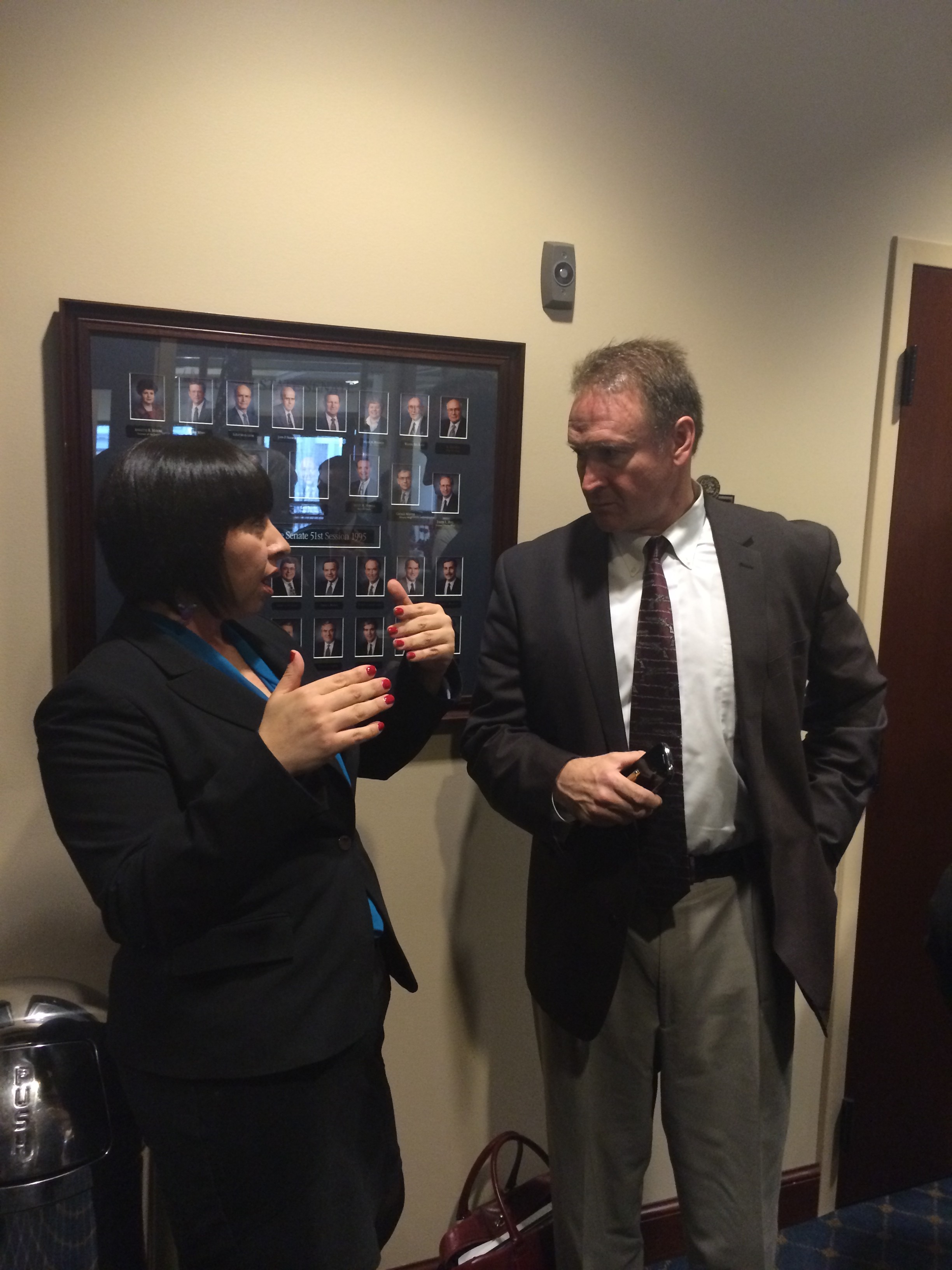
One the adults Romero talked to said, “Maybe if I would’ve known how to protect myself … I could’ve stopped that abuse.”
The bill was amended to require parents to opt-in if the discussion deals with sexual topics.
“”I like the teacher training part of this,” Rep. Ronda Menlove said. “I feel like that was my role as a mom.”
Carrie Jensen, associate director of Prevent Child Abuse Utah, said the program would be tailored to be age-appropriate. Instead of saying sexual abuse, children can call it a “bad secret.”
The bill would also educate children to know they can talk to adults they trust about abuse.
Collin Smith
SALT LAKE CITY — Time ran out for Sen. Karen Mayne and Senate bills 36 and 113. There was much debate and discussion but both bills ended up in House Rules Committee.
Both SB36, voter information amendments, and SB113, public meeting amendments, were flagged by the Utah Media Collation, a group which identifies bills that deal with making the government more open or more closed to the public.
Sen Mayne’s bills were flagged as bills that made the government more closed to the people, the coalition said, and so the bills did not receive a favorable review from the coalition.
Miranda Collette
SALT LAKE CITY – A bill that would modernize the delivery of public education in Utah schools was stalled in committee and won’t see the governor’s desk for at least another year.
HB131S03,the education modernization act, had an estimated a $200 million budget for 2015 and an additional $150 million required for 2016. With a price tag that big, legislators this session struggled to agree on how it could be funded.
The bill would provide electronic devices to school children, who House Speaker Becky Lockhart, R-Provo, referred to as “technology natives”. She said the bill was a bold piece of legislation that would continue to affect students 10 to 20 years down the line.
After passing initially in the House education committee, the bill was sent for additional fiscal consideration before being heard in the House of Representatives. However, after three different substitute forms of the bill, legislators could not agree on funding for the bill, and it was ultimately not heard in the Senate.
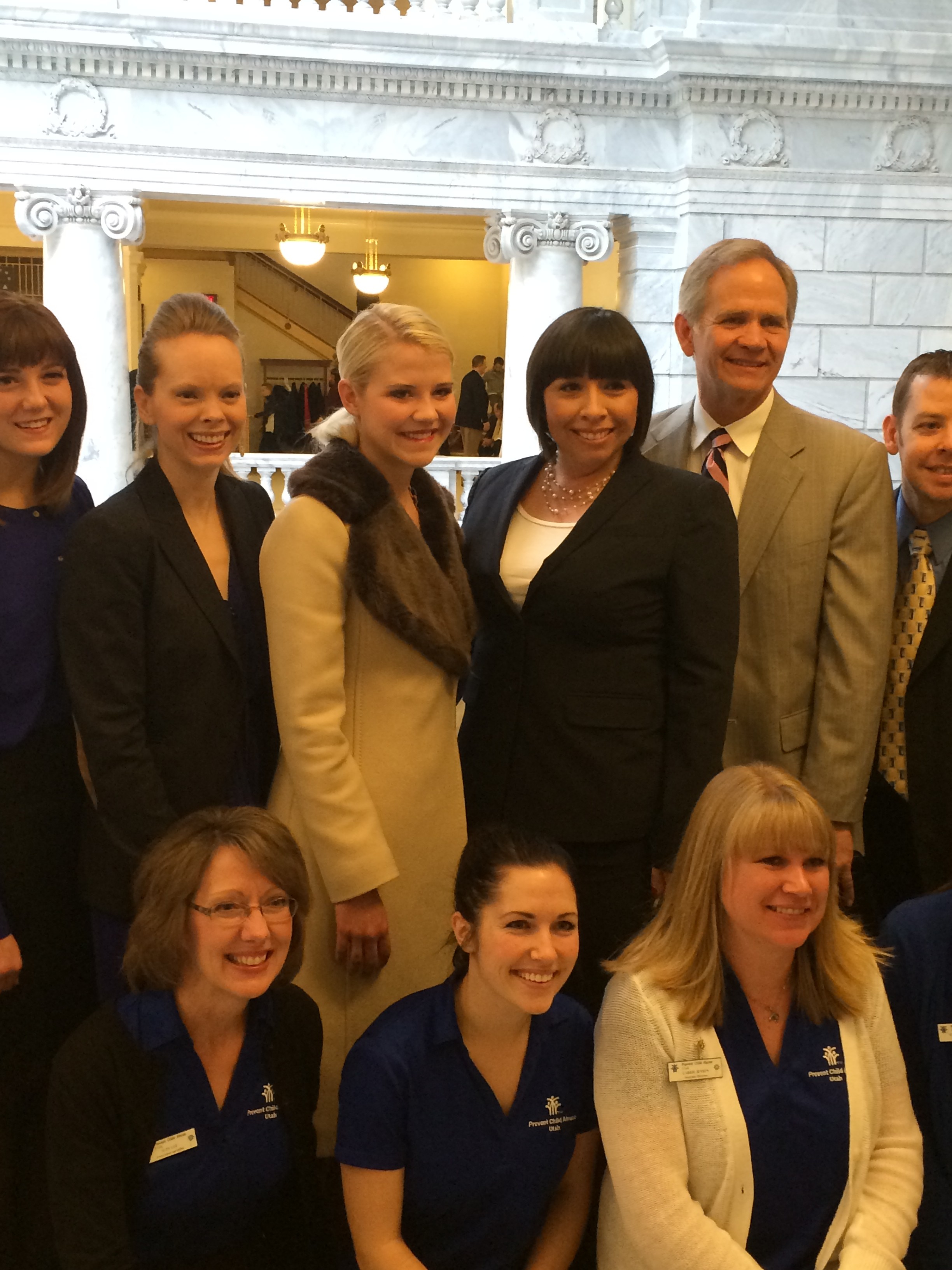
Liesel Hansen
SALT LAKE CITY — HB213, The bill on criminal penalties for sexual contact with a student, was passed on March 13.
“It Breaks my heart to even think that these situations have arisen, but they’ve arisen more than once,” Rep. Lavar Christensen, R-Wasatch, said.
Christensen, who is the bill’s sponsor, went over amendments made to the bill during the committee. The bill would penalize not only a teacher who engages in inappropriate interaction with students, but any type of educator, whether it be a teacher’s aide or any adult employee of a public or private school.
“We don’t have a stand-alone teacher setting,” Christensen said. “We can’t contemplate every setting you can think of.”
Christensen said his aim was not to change the body of the law, but to clarify certain point of the bill and to close up any loopholes perpetrators would try to find in the law.
“It’s something we have contemplated very seriously from year to year.”
Adam Droge
SALT LAKE CITY — The Utah Legislature passed several new driving laws, including laws regarding distracted driving, speed limits, drowsy driving and electric cars.
“Driving is a privilege, not a right,” said Rep. John Knotwell, R-Herriman, earlier in the legislature.
This opinion was reflected among many of the legislators as they discussed the various driving bills throughout the session. One such bill, SB253, has to do with distracted driving. Bill sponsor Sen. Stephen Urquhart, R-St. George, described the bill as one that tightens up the current laws concerning texting and driving.
“Currently our texting law is ambiguous,” Urquhart said. “Police have a tough time enforcing it because they’ll pull someone over and say it looked like you were texting, and they’ll say no I was playing solitaire or doing something else on my phone.”
SB253 states that permissible uses of the phone while driving include holding a phone to the ear, accessing a phone number, using voice-activation or GPS. Other uses of a phone while driving are now prohibited. SB253 passed in the last hour of the legislature on a close vote.
HB80, a bill addressing speed limits, also passed this session. For the past five years, studies were conducted testing the feasibility of increasing the speed limit in some areas to 80 mph. Results of the studies determined that despite increasing the speed limits by five mph in the test areas, the average speed of drivers only increased by one or two mph.
With the passage of HB80, the Utah Department of Transportation can now officially change speed limits across Utah to speeds it feels are natural and appropriate in given areas.
“So far we have determined that changing the number on the sign does not change people’s behavior, but we do have in those test sections between 20 and 30 percent greater compliance with the speed limit,” said Rep. James Dunnigan, R-Taylorsville.
Dunnigan also said the data showed the increased speed limits did not cause any fatal accidents and did not affect air quality. Dunnigan anticipates speed limit changes will include increasing speed limits from 75 mph to 80 mph in some rural areas and increasing from 65 mph to 70 mph in some urban areas.

Photo Credit: I, Daniel Schwen, Wikimedia Commons
Additionally, HB19, a bill affecting the electric car business in Utah, passed unanimously. The current law states that only entities regulated as public utilities and electric corporations are able to sell electricity to the public. HB19 removes that requirement and will allow for more electric charging stations throughout the state.
“Expanding the network of charging stations will give electric vehicle drives the ability to take longer trips and give more people the confidence to purchase electric vehicles,” said Sen. Ralph Okerlund, R-Monroe.
Okerlund also said HB19 sends the message that Utah is open for business for electric vehicles, while also sending the message that Utah is serious about cleaning up the air.
The final bill passed concerning driving was SB149, a bill about drowsy driving. This bill doesn’t actually change any penalties or criminal codes concerning drowsy driving but rather aims to raise awareness about drowsy driving by designating the third full week of August as Drowsy Driving Awareness Week. This will be commemorated annually and coincides with the end of the summer months, a time when many people may be driving drowsy as they return home from summer vacations.
Mallory Jeserspon
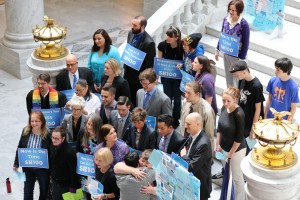
SB100, the anti-discrimination bill, is officially dead. Throughout the 45-day Legislature Sen. Steve Urquhart, R-St. George, fought hard just to get the bill heard on the floor, but the bill continued to remain untouched in the Senate Rules Committee.
Protestors yelled throughout the Capitol during this year’s session to have the bill heard, and 13 were booked into the Salt Lake County jail over the bill, but to no avail.
SB100 would have added gender identity and sexual orientation to the list of ways landlords and employers could not discriminate against tenants or employees.




